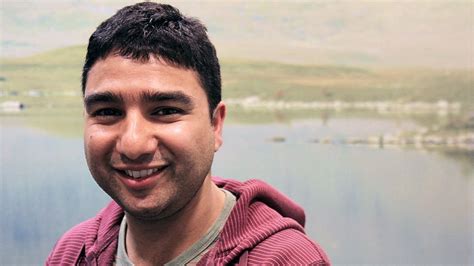A Quote by Helen Keller
There is much in the Bible against which every instinct of my being rebels, so much that I regret the necessity which has compelled me to read it through from beginning to end. I do not think that the knowledge which I have gained of its history and sources compensates me for the unpleasant details it has forced upon my attention.
Related Quotes
Thus I came...to a deep religiosity, which, however, reached an abrupt end at the age of 12. Through the reading of popular scientific books I soon reached a conviction that much in the stories of the Bible could not be true....Suspicion against every kind of authority grew out of this experience...an attitude which has never left me.
..there is need for a person to be generally educated. Otherwise you shrivel up much too soon. Whether this means reading the bible (I read the New Testament every few years) or reading the great 19th century novelists (the greatest and shrewdest judge of people and of society who ever lived), or classical philosophy (which I cannot read-it puts me to sleep immediately), or history (which is secondary). What matters is that the knowledge worker, by the time he or she reaches middle age, has developed and nourished a human being rather than a tax accountant or a hydraulic engineer.
[Photography] allows me to accede to an infra-knowledge; it supplies me with a collection of partial objects and can flatter a certain fetishism of mine: for this 'me' which like knowledge, which nourishes a kind of amorous preference for it. In the same way, I like certain biographical features which, in a writer's life, delight me as much as certain photographs; I have called these features 'biographemes'; Photography has the same relation to History that the biographeme has to biography.
Let me tell you a few things about regret...There is no end to it. You cannot find the beginning of the chain that brought us from there to here. Should you regret the whole chain, and the air in between, or each link separately as if you could uncouple them? Do you regret the beginning which ended so badly, or just the ending itself?
The newspaper is a Bible which we read every morning and every afternoon, standing and sitting, riding and walking. It is a Biblewhich every man carries in his pocket, which lies on every table and counter, and which the mail, and thousands of missionaries, are continually dispersing. It is, in short, the only book which America has printed, and which America reads. So wide is its influence.
I actually think history doesn't repeat itself. There are recurrent themes, but they're repeated with variations. Each time there's an immigration crisis, a threat from outside which is met with inhospitable wall building, it's different. And I think it's helpful to notice the big patterns in history, but it's also important to pay attention to the details, which makes each situation distinct from another.
[T]ruly to escape Hegel involves an exact appreciation of the price we have to pay to detach ourselves from him. It assumes that we are aware of the extent to which Hegel, insidiously perhaps, is close to us; it implies a knowledge, in that which permits us to think against Hegel, of that which remains Hegelian. We have to determine the extent to which our anti-Hegelianism is possibly one of his tricks directed against us, at the end of which he stands, motionless, waiting for us.
I also want to take cognizance of the fact that this flight was made out in the open with all the possibilities of failure, which would have been damaging to our country's prestige. Because great risks were taken in that regard, it seems to me that we have some right to claim that this open society of ours which risked much, gained much.
Old Lights include the resurgent fundamentalists in every religion who put a freeze on history and fortify their adherents against the "new dark age" in which they are forced to live. "Back to the Bible," Old Lights shout; "back to the Koran," Old Lights thunder. But not everything Old Lights say is wrong. Much is right. Even a stopped clock is right twice a day, the old adage reminds us.
In a world in which there is so much to interest, so much to enjoy, and so much also to correct and improve, everyone who has this moderate amount of moral and intellectual requisites is capable of an existence which may be called enviable; and unless such a person, through bad laws, or subjection to the will of others, is denied the liberty to use the sources of happiness within his reach, he will not fail to find the enviable existence
How is the mind which functions on knowledge how is the brain which is recording all the time to end, to see the importance of recording and not let it move in any other direction? Very simply: you insult me, you hurt me, by word, gesture, by an actual act; that leaves a mark on the brain which is memory. That memory is knowledge, that knowledge is going to interfere in my meeting you next time obviously.
I read, I study, I examine, I listen, I reflect, and out of all of this I try to form an idea into which I put as much common sense as I can. I shall not speak much for fear of saying foolish things; I will risk still less for fear of doing them, for I am not disposed to abuse the confidence which they have deigned to show me. Such is the conduct which until now I have followed and will follow.
I don't want to give the impression that I'm a great Bible reader. I don't sit down every day and read for an hour through the Bible. But I really do read it with a great deal of pleasure... which is the last thing I would have suspected. So I read it sometimes as a devotional, but really more, not for fun, but because it's fascinating.

































